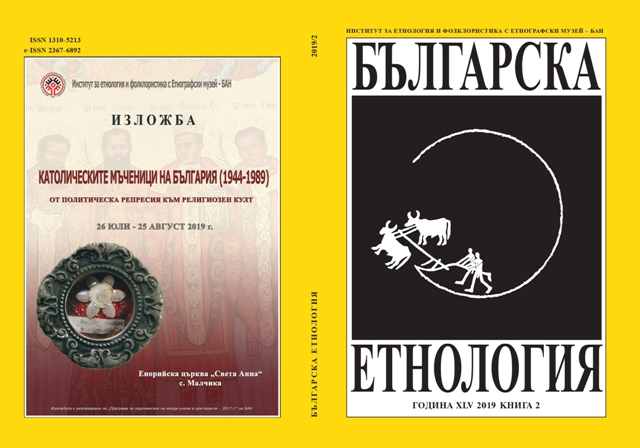Емоции и семейни отношения в условията на транснационална миграция. Случаят на гораните от Косово
Emotions and Family-Kin Relations under Conditions of Transnational Migration. The Case of the Gorani from Kosovo
Author(s): Ivaylo MarkovSubject(s): Anthropology, Customs / Folklore, Ethnohistory, Local History / Microhistory, Oral history, Social history, Gender history, Cultural Anthropology / Ethnology, Culture and social structure , Family and social welfare, Migration Studies, Globalization, Identity of Collectives
Published by: Институт за етнология и фолклористика с Етнографски музей при БАН
Keywords: emotions; transnational families; virtual communication; visits; Gorani
Summary/Abstract: While most studies of transnational processes are focused on the remittances inthe context of socio-economic development or on the transnational citizenship and the political mobilization across the borders, this article aims to explore the role of emotions in the migration experience and more specifically – their place in the negotiation of transnational family-kin life. The author proceeds from the assumption that the emotional dynamics are an important part of the analysis of the transnational kin relations. According to this approach, the focus of the study is not only on those who leave but also on those who remain in the villages of origin. Feelings of loss, sadness, longing, pain, guilt, but also expressions of happiness, excitement,gratitude, love, hopefulness etc., are experienced in both ends of the migration chain.Emotional encounters are related to family expectations and moral obligations, to mutual responsibilities and care giving within the dispersed families.These issues are addressed on the basis of ethnographic data personally collected by the author among representatives of the Kosovar Gorani – a community renowned in the Balkans for the decades-long intensive labour mobility which often involves two or even three generations within a family-kin group. The data presented show that transnational family-kin members may find ways to connect time and space so as to ensure (virtual and physical) co-experiences and to keep their emotional relationships viable and active. The tools and strategies used by people are various and include memories, imaginations, gifts and remittances, long-distance communication and mutual visits.
Journal: Българска етнология
- Issue Year: 2019
- Issue No: 2
- Page Range: 152-169
- Page Count: 18
- Language: Bulgarian

